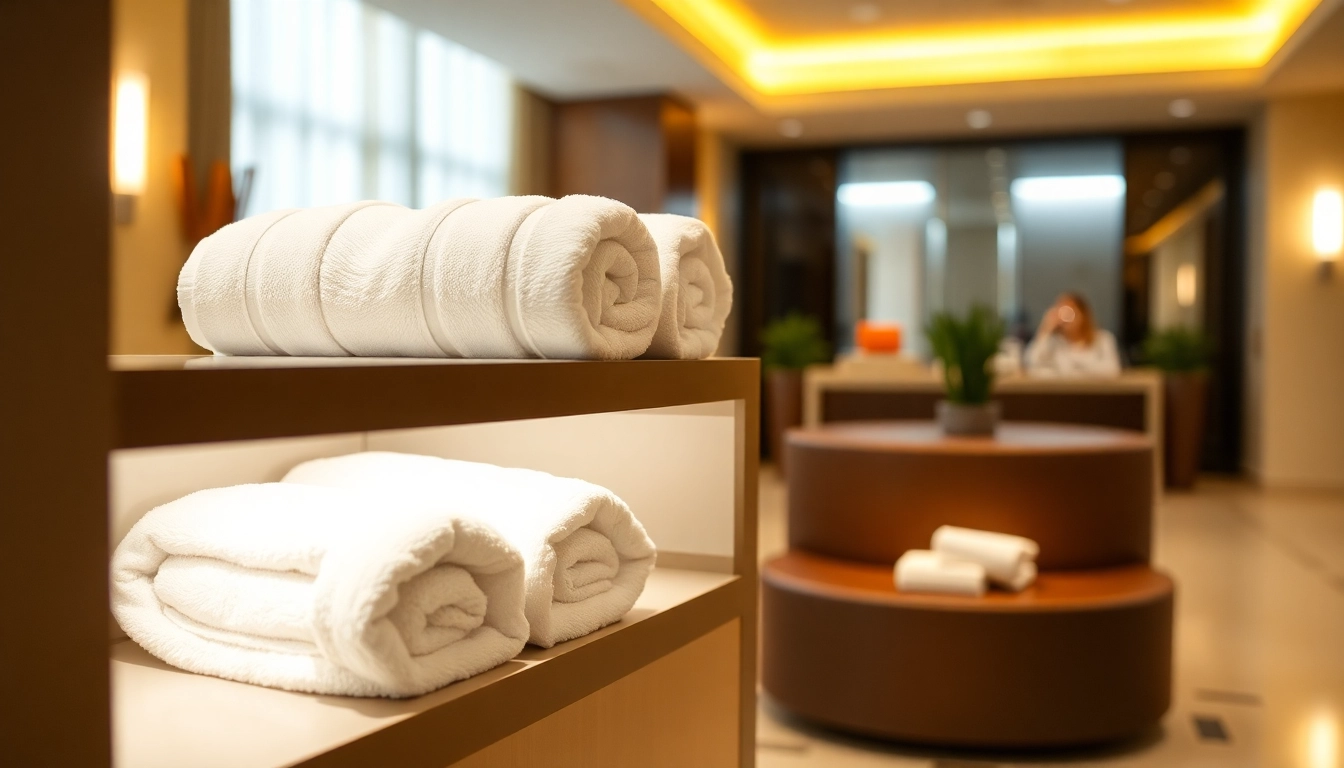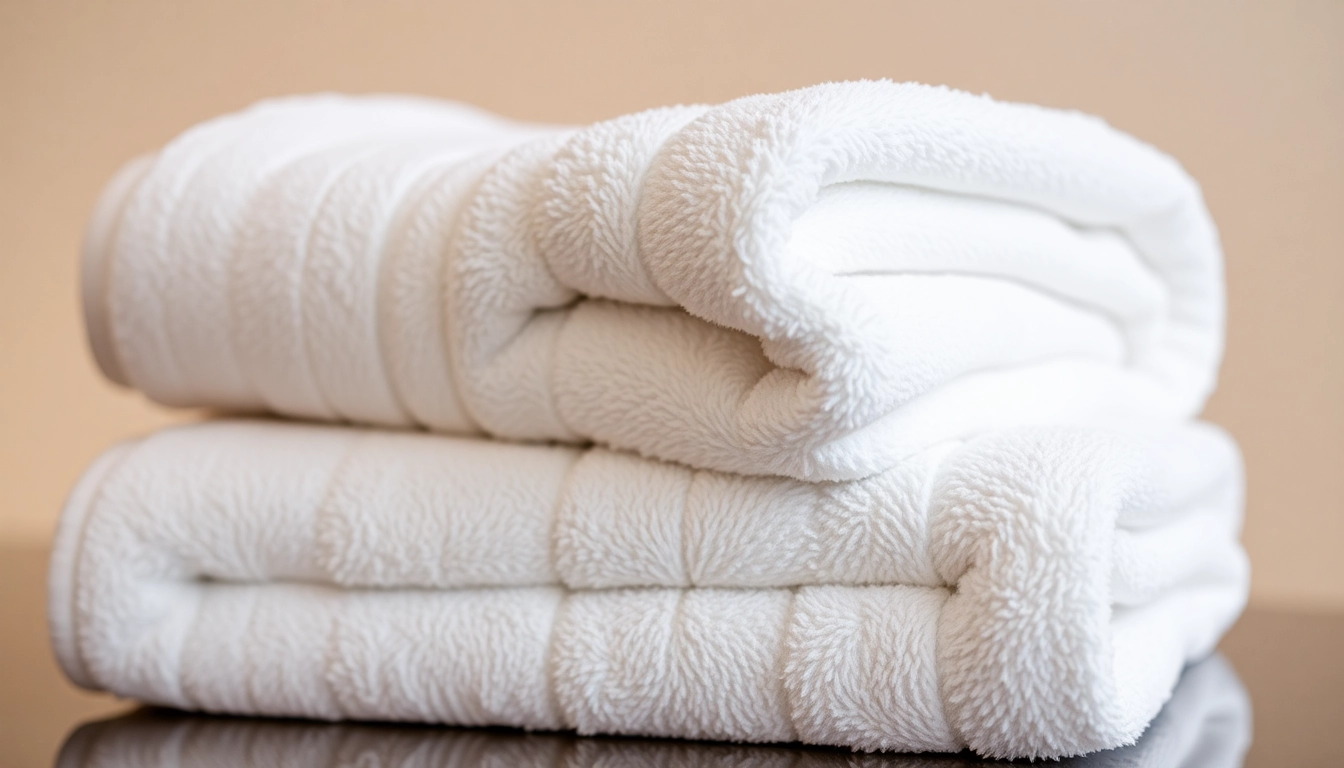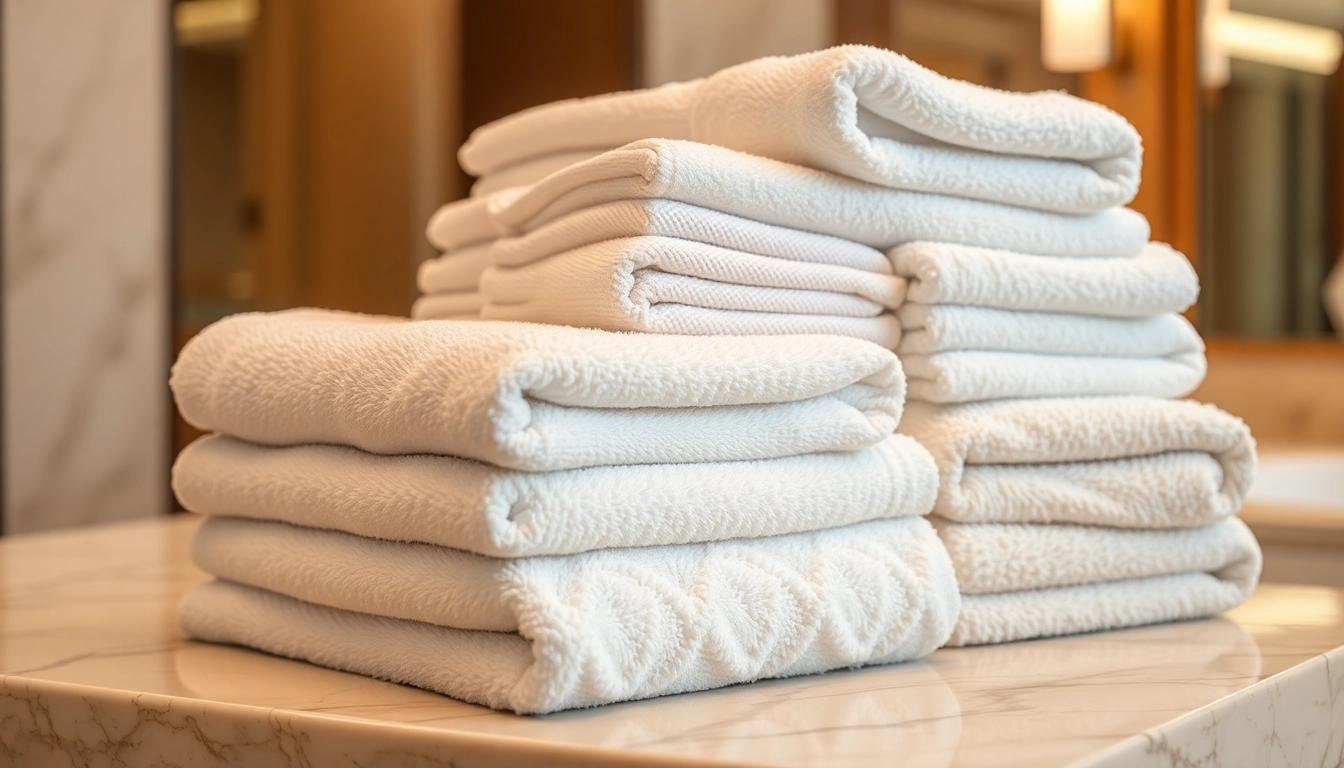Premium Hotel Towel Supplier: Elevate Your Hospitality Experience with Quality Towels
Understanding the Role of a Hotel Towel Supplier in Hospitality
In the competitive world of hospitality, guest experience is paramount. Every touchpoint, from the ambiance to the amenities, reflects your establishment’s commitment to excellence. Among these amenities, towels might seem like minor details, but they play a crucial role in shaping guest satisfaction and perception. The choice of a hotel towel supplier directly impacts the quality, durability, and overall guest experience in your hotel. This article explores the multifaceted role of towel suppliers in the hospitality industry, offering insights into selection criteria, types of towels, materials, customization, and effective supplier management practices.
Why Quality Towels Matter in Hotels
High-quality towels are more than just functional items; they are a statement of your hotel’s standards. Soft, durable, and absorbent towels elevate the guest experience, making them feel valued and pampered. Conversely, inferior towels can lead to guest dissatisfaction, negative reviews, and increased costs due to frequent replacements. Quality towels also contribute to the aesthetic appeal of your bathrooms and spa areas, aligning with your branding and overall design theme.
Furthermore, quality towels offer better durability and longevity, especially when subjected to frequent washing and drying—a common requirement in commercial settings. Their superior absorbency ensures guests’ comfort, leaving them feeling refreshed and satisfied after each use. In essence, investing in premium towels through a reliable hotel towel supplier is an essential element of hospitality excellence.
Key Criteria for Selecting a Reliable Towel Supplier
Choosing the right towel supplier is foundational to maintaining high standards. Here are critical criteria to consider:
- Quality Assurance: The supplier should adhere to strict manufacturing standards, ensuring towels meet industry benchmarks for softness, absorbency, and durability.
- Material and Fabric Standards: Leading suppliers offer a range of high-quality materials, primarily 100% cotton or premium blends, which provide optimal performance and comfort.
- Customization Capabilities: The ability to customize towels with branding, embroidery, or specific colors helps reinforce your hotel’s branding messaging.
- Volume Flexibility and Lead Time: Reliable suppliers can accommodate bulk orders and deliver within agreed timeframes, ensuring minimal disruption to your operational needs.
- Competitive Pricing and Contract Terms: Transparent pricing models and favorable contractual conditions are vital for budget management.
- Reputation and References: Suppliers with positive reviews, industry certifications, and proven track records are preferable.
- Sustainability Practices: Eco-friendly manufacturing processes and sustainable materials align with the growing eco-conscious market and reduce your environmental footprint.
For example, companies like Canary Tex and Acme Textiles are renowned for their commitment to quality and customization capabilities, often supplying luxury retail brands and boutique hotels.
How a Supplier Impacts Guest Satisfaction
The quality of towels directly influences guest comfort and perception. Soft, plush towels contribute to a luxurious ambiance, leaving a lasting impression. When towels are absorbent, guests can dry quickly and comfortably, which enhances their overall experience. Conversely, rough, thin, or poorly manufactured towels can detract from perceived hotel standards.
Additionally, timely and reliable supply ensures that towels are always available and maintained at high standards. Consistent quality control by the supplier reduces the risk of issues such as fraying, color fading, or deterioration, thereby maintaining a positive guest experience over time.
Hotels that prioritize exceptional guest experiences often partner with specialty hotel towel suppliers that understand industry-specific demands, helping to foster guest loyalty and positive reviews, ultimately translating into higher occupancy rates and revenue.
Types of Towels Offered by Hotel Towel Suppliers
Bath Towels and Bathrobes: Essentials for Luxury Hotels
Bath towels and robes are perhaps the most visible amenities in a hotel’s bathroom. They should combine plushness, absorbency, and durability. Luxury hotels often select high GSM (grams per square meter) cotton towels—typically 450–650 GSM—for a soft, luxurious feel. Embroidered logos or color-coordinated trims help align these towels with your brand identity, creating a seamless guest experience.
Pool and Spa Towels for Recreational Spaces
Pool and spa towels are designed to be highly absorbent and quick-drying, often made from microfibers or blended fabrics to withstand outdoor exposure and frequent laundering. Their vibrant colors and designs also serve as branding opportunities, whether for resort logos or seasonal themes.
Washcloths and Hand Towels for Guest Convenience
Smaller towels like washcloths and hand towels enhance guest convenience and hygiene. As they are used frequently, their durability and washability are critical factors. Suppliers often offer these in bulk with options for embroidery or color coding to match larger towel sets.
Materials and Manufacturing Standards for Hotel Towels
Popular Fabrics: Cotton, Microfiber, and Blends
The quality of your hotel towels largely hinges on the fabric used. 100% cotton, particularly combed or ring-spun cotton, offers unrivaled softness and absorbency. Microfibers are gaining popularity due to their quick-drying properties and compactness, suitable for outdoor or poolside towels. Blends, such as cotton-polyester, provide cost-effective durability while maintaining a decent level of comfort.
Durability and Absorbency: What to Look For
Durability is gauged by the GSM and the quality of fiber processing. Higher GSM towels tend to be thicker and more durable but may weigh more. Absorbency is influenced by fiber type and finish—tight, smooth weaves enhance moisture uptake. Suppliers should provide performance data and test results to validate these properties.
Eco-friendly and Sustainable Towel Production
Increasingly, hotels are seeking environmentally responsible sourcing. This includes using organic cotton, eco-friendly dyes, and manufacturing processes that reduce water and energy consumption. Certifications like OEKO-TEX or GOTS affirm adherence to sustainability standards, appealing to eco-conscious guests and reducing ecological impact.
Customizing Towels for Brand Identity
Logo Embroidery and Color Coordination
Customization enhances brand recognition. Embroidered logos on towels not only reinforce your brand but also add a touch of luxury. Color schemes that match your hotel’s design palette foster a cohesive look across guest areas. Lead times for customization vary but are typically manageable with advanced planning.
Design Trends in Hospitality Towels
Current trends favor minimalist logos, soft pastel or neutral tones, and eco-inspired patterns. Some hotels opt for monochrome sets to create a sleek, modern aesthetic, while others incorporate bold branding for visual impact.
Order Sizes and Lead Times
Depending on your hotel size, towel orders can range from hundreds to thousands of pieces. Establishing a relationship with your supplier for regular reordering ensures inventory continuity. Lead times can vary from 2 weeks for standard orders to longer for customized designs, so planning ahead is essential.
Working Effectively with a Hotel Towel Supplier
Negotiating Pricing and Contracts
Pricing negotiations should focus on bulk discounts, payment terms, and after-sales support. Clear contracts specify quality standards, delivery schedules, and return policies to avoid misunderstandings.
Ensuring Quality Control and Consistency
Regular site visits, sampling, and third-party inspections help maintain quality. Long-term partnerships benefit from consistent product standards, which reinforce your brand’s reliability.
Managing Delivery Schedules and Inventory
Effective inventory management requires coordinated forecasting based on occupancy trends and seasonal demands. Establishing reliable logistics channels with your supplier minimizes stock shortages and ensures continuous supply.



